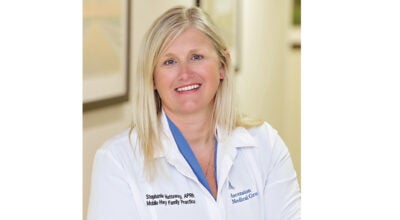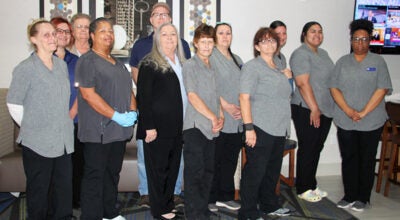State funds to schools late again
Published 12:17 am Friday, November 21, 2008
A shortfall in state revenue is forcing Alabama to be late again in sending state funds to school systems to make their monthly payroll, but local superintendents said they’ll be able to manage the reduction in cash flow.
Alabama, like other states, has felt the impact of the national slowdown. State officials were late at the end of October in sending state checks to public schools and colleges, and they say they will be late again next week.
When the first checks were late, some of Alabama’s 131 school systems had to take out short-term loans until the full amount arrived from the state. Sally Howell, executive director of the Alabama Association of School Boards, said that scenario will likely play out again next week.
But in Covington County and Opp, local funds will make up the difference until the state catches up.
Opp City Schools superintendent Michael Smithart said, “Receiving the partial payments has not been a burden on our system yet. We have enough in our cash management to make up the difference. It’s not something we want to do often, but we can survive that.”
Covington County Schools superintendent Sharon Dye said it is her understanding that the November payments to schools will be made in two parts, with the second part taking place in December.
“We know that FY 2008 ended with no carryover and the state had to wait for receipts from November to be tabulated in order to pay the remaining of October’s late amount,” Dye said. “This caused November to start in a deficit position. As you can imagine, this is devastating to all school systems. Systems are having to use local funds to meet obligations.”
Smithart said that the delay may affect when employees receive their December checks.
“We traditionally attempt to pay our staff prior to the holidays and with no guarantees as to how much nor when we will receive our allocation, it is highly unlikely we will be able to do that,” Smithart said.
Andalusia City Schools superintendent couldn’t be reached for comment Thursday.
State Finance Director Jim Main said the state began fiscal 2009 on Oct. 1 in much different shape than normal. In a typical year, there is leftover education tax revenue to begin the new budget. But that wasn’t the case this time because tax collections fell short of spending in fiscal 2008, which ended Sept. 30.
State officials had to spend every dime collected in taxes and empty a “rainy day” savings account to balance the books when the fiscal year ended in September.
That caused state finance officials to send school systems only 75 percent of their normal amount of revenue at the end of October. When the state collected more tax revenue in November, the state sent the remaining 25 percent about one week into the month.
Main said that made November start out short. The end of the month will also be short of funds, he said, because the state will be closed for several days for Thanksgiving, meaning businesses won’t be able to submit tax payments on those days.
The late state checks are one more headache for school administrators who are likely to see their pain grow when the Legislature returns in February to write the next state education budget. That budget will likely be less than this year’s, marking the second year in a row of budget cuts for public schools and colleges.
“I don’t see any way to avoid cuts. The question is how far are they going to have to cut us,” said Bradley Byrne, chancellor of Alabama’s two-year colleges and a former state senator.
State Superintendent of Education Joe Morton gave this advice to the State Board of Education at its meeting last week: “Pray for our economy. We are in unusual times.”
In the election Nov. 4, Alabama voters approved a constitutional amendment that will allow state officials to borrow money from a state savings account, the Alabama Trust Fund, to help make up for the revenue shortage in the education budget. But that can’t happen until after state officials certify the election results on Nov. 25, Main said.




